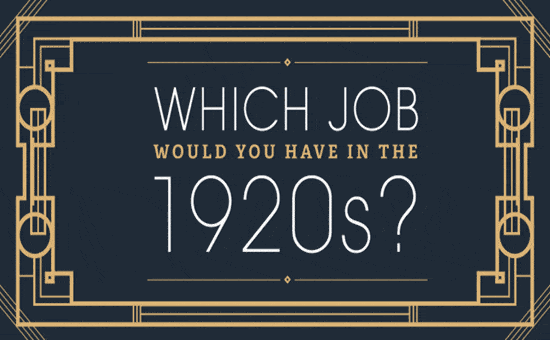How are you dealing with the 21st century? Those who’ve been in the work market for a couple of decades or more have witnessed a hastening evolution of how things are done and what you need to do just to get by – let alone to excel.
Even millennials can find themselves somewhat adrift when new skills become outdated and employers experiment with workplace environments that are wildly different to what you were prepared for in school.
However, we’re lucky enough to live in an age of apparently infinite resources for self-improvement, career development and entrepreneurship. The online world is full of advice, training courses (many for free), and forums filled with like-minded individuals and more experienced professionals who are eager to share their knowledge.
Look back ninety years or more and the picture is quite different. The forerunner of that same communication network, the phone system, was made to function not by codes and algorithms but by real live “Hello Girls” whose job was to connect caller to call-taker by plugging and unplugging jacks and cables at the telephone exchange. Imagine if the same process happened every time you typed a different URL into your browser!
Even getting up to go to work in the morning was a more difficult process. Today, aside from the few lucky people who can reliably depend on their ‘internal clock’ to wake them in the morning, even the most ambitious among us need our iPhone or old school alarm clock to stir us from slumber. In those days, you might make more money as one of the few professional ‘knocker uppers’ – human alarm clocks – than the factory workers who relied on them. Which would you have been: the knocker upper, banging on windows before the sun rose, or the factory worker with a job for life but no real sense of self-determination?
But professionals in the 1920s had to deal with changing times and technological progress just like the rest of us. For example, in 1927, movies started to be released with synchronised sound, which meant that many of the legendary stars who’d been admired in the silents were now heard speaking for the first time. If an actor’s voice was not as luscious as his or her looks, or they just couldn’t act to the standards now required, they would soon become yesterday’s news – and end up joining the rest of us in the queue to become a salesman, a laborer or a telephone operator. Those knocker-uppers were replaced by radio alarms and smart phones, and robots are still in the process of taking over the factories.
To see where you might have ended up in the 1920s, and what your financial prospects might have been, have a look at this new infographic from OnStride Financial. It might make your feel a little more empowered over your 21st century career!
John Cole is a digital nomad and freelance writer. Specialising in leadership, digital media and personal growth, his passions include world cinema and biscuits. A native Englishman, he is always on the move, but can most commonly be spotted in Norway, the UK and the Balkans.
(Image Source: OnStride Financial)
